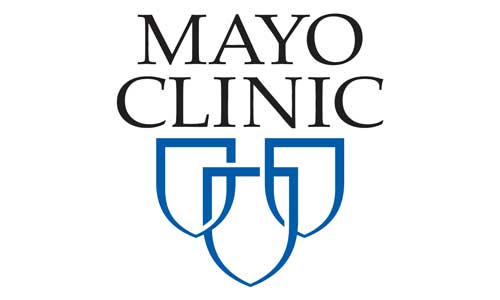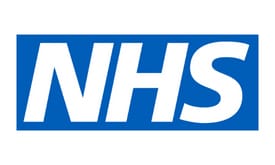Mebendazole, a prescription drug used in humans to treat parasites, and fenbendazole, a treatment for parasites in animals, show promising but so far very preliminary evidence of anticancer effects.
Safety and precautions
Mebendazole generally has low toxic side effects.1Pantziarka P, Bouche G, Meheus L, Sukhatme V, Sukhatme VP. Repurposing Drugs in Oncology (ReDO)-mebendazole as an anti-cancer agent. Ecancermedicalscience. 2014 Jul 10;8:443. Mebendazole was safe and well tolerated when given with bevacizumab and irinotecan at doses up to 200 mg per kilogram per day in children and young adults with high-grade gliomas.2Krystal J, Hanson D, Donnelly D, Atlas M. A phase 1 study of mebendazole with bevacizumab and irinotecan in high-grade gliomas. Pediatric Blood & Cancer. 2024 Apr;71(4):e30874.
Cancer outcomes or risk
People with refractory gastrointestinal cancer treated with mebendazole all experienced rapid and accelerated progressive disease, and 40% met the criteria for hyperprogression of disease.3Mansoori S, Fryknäs M et al. A phase 2a clinical study on the safety and efficacy of individualized dosed mebendazole in patients with advanced gastrointestinal cancer. Scientific Reports. 2021 Apr 26;11(1):8981.
Early research concluded that fenbendazole promoted liver tumors in rats4Shoda T, Onodera H et al. Liver tumor promoting effects of fenbendazole in rats. Toxicologic Pathology. 1999 Sep-Oct;27(5):553-62. and has even been used as a liver tumor promoter in animal studies,5Mizukami S, Ichimura R et al. Induction of GST-P-positive proliferative lesions facilitating lipid peroxidation with possible involvement of transferrin receptor up-regulation and ceruloplasmin down-regulation from the early stage of liver tumor promotion in rats. Archives of Toxicology. 2010 Apr;84(4):319-31. along with other parasite-killing (anthelminthic) agents.6Onodera H, Mitsumori K et al. [Intensity of liver tumor promotion effects in rats given repeated oral administrations of benzimidazole compounds]. Eisei Shikenjo Hokoku. 1996;(114):21-6. Japanese. More recent research has concluded that fenbendazole doesn’t cause cancer but that it may behave as a tumor promoter when given after specific tumor initiators—substances given to animals to cause cancer in studies.7Villar D, Cray C, Zaias J, Altman NH. Biologic effects of fenbendazole in rats and mice: a review. Journal of the American Association for Laboratory Animal Science. 2007 Nov;46(6):8-15.
Interactions with cancer treatments
Mebendazole interfered with the antitumor effects from the combination of nitroglycerin and metformin in animal studies, leading to more tumor progression.8Popović KJ, Popović DJ et al. Co-treatment with nitroglycerin and metformin exhibits physicochemically and pathohistologically detectable anticancer effects on fibrosarcoma in hamsters. Biomedicine & Pharmacotherapy. 2020 Oct;130:110510. Similarly, mebendazole completely blocked anticancer activity of the combination of disulfiram and metformin on fibrosarcoma in animals.9Popović KJ, Popović DJ et al. Disulfiram and metformin combination anticancer effect reversible partly by antioxidant nitroglycerin and completely by NF-κB activator mebendazole in hamster fibrosarcoma. Biomedicine & Pharmacotherapy. 2021 Nov;143:112168.
Side effects or adverse events
Mebendazole
Studies have found abdominal pain, headache, and diarrhea among people treated with mebendazole for parasites.10Palmeirim MS, Ame SM, Ali SM, Hattendorf J, Keiser J. Efficacy and safety of a single dose versus a multiple dose regimen of mebendazole against hookworm infections in children: a randomised, double-blind trial. EClinicalMedicine. 2018 Jul 11;1:7-13. Patients at a tertiary hospital for blood diseases treated with mebendazole showed an increased risk of aplastic anemia.11Syed MA, Atta Ur Rahman A, Shah Syed MN, Memon NM. The relationship of drug therapy to aplastic anemia in Pakistan: a hospital-based case control study. Therapeutics and Clinical Risk Management. 2021 Aug 27;17:903-908.
People treated with mebendazole in combination with lomustine (CCNU) had significant negative side effects when the dose reached 1600 mg three times a day. The three most common were anemia, nausea, and fatigue. The effects were less among people treated with temozolomide instead of lomustine. The authors conclude: “The recommended phase 2 dose of mebendazole is 1600 mg three times a day with temozolomide and temozolomide-radiation combination while the dose of 800 mg three times a day needs to be used with single-agent CCNU.”12Patil VM, Bhelekar A et al. Reverse swing-M, phase 1 study of repurposing mebendazole in recurrent high-grade glioma. Cancer Medicine. 2020 Jul;9(13):4676-4685.
Fenbendazole
One elderly patient with advanced non-small cell lung cancer self-treating with fenbendazole developed liver dysfunction which resolved when fenbendazole was stopped.13Yamaguchi T, Shimizu J, Oya Y, Horio Y, Hida T. Drug-induced liver injury in a patient with nonsmall cell lung cancer after the self-administration of fenbendazole based on social media information. Case Reports in Oncology. 2021 Jun 17;14(2):886-891.
The US Food and Drug Administration (FDA) and European Medicines Agency (EMA) don’t allow fenbendazole for human use.14Heo DS. Anthelmintics as potential anti-cancer drugs? Journal of Korean Medical Science. 2020 Feb 17;35(6):e75.
Other benzimidazole derivatives
The maximum tolerated dose of albendazole was 2,400 mg per day (1,200 BD) for people with advanced cancer. The main dose-limiting toxicity was suppression of bone marrow (myelosuppression), and fatigue and mild gastrointestinal upset were the other major negative adverse effects.15Pourgholami MH, Szwajcer M et al. Phase I clinical trial to determine maximum tolerated dose of oral albendazole in patients with advanced cancer. Cancer Chemotherapy and Pharmacology. 2010 Feb;65(3):597-605.
Patients with either liver cancer (hepatocellular carcinoma) or colorectal cancer with liver metastases that didn’t respond to other forms of therapy were treated with 10 mg oral albendazole per kilogram per day in 2 divided doses for 28 days. Three of the seven patients “were withdrawn for severe neutropenia which was probably contributory to the death of one patient.” Albendazole showed no evidence of an effectoverall, one or more studies did not demonstrate that a treatment or intervention led to an expected outcome; this does not always mean that there is no effect in clinical practice, but that the studies may have been underpowered (too few participants) or poorly designed. Larger, well-designed studies provide more confidence in making assessments. on hematological, kidney, or liver function tests compared to baseline in a small uncontrolled triala study in which a therapy is used, but without a comparison group against which to judge outcomes; an uncontrolled trial is considered a weak study design.16Morris DL, Jourdan JL, Pourgholami MH. Pilot study of albendazole in patients with advanced malignancy. Effect on serum tumor markers/high incidence of neutropenia. Oncology. 2001;61(1):42-6.
Helpful links

Heo DS. Anthelmintics as potential anti-cancer drugs? Journal of Korean Medical Science. 2020 Feb 17;35(6):e75.
Keep reading about mebendazole or fenbendazole
Learn more
References


